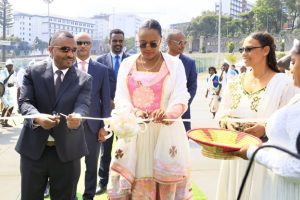
Ethiopia’s policy towards Eritrea from among the neighboring nations should be given critical attention as we have the closest historical, social, cultural and political ties with Eritrea despite the fact that it is also with Eritrea that we have had two vicious wars in the recent historical period.
As our reformist and most heard Prime Minister Dr. Abiy Ahmed said, if there was a policy that was heavily affected by different emotions, it was our policy towards Eritrea.
On the one hand, there are those who have not accepted the independence of Eritrea, and they see this from the “port access” point of view relating the unlike facts. Though Ethiopia is landlocked, Eritrea’s sovereignty should not be over passed for selfish mentality, but it needs to create strong ties and chart out appropriate policy.
There were and of course are those who have difficulty to control their feelings, insisting that we were one people and remain one people. And they called for a permanent estrangement between the two countries.
These emotions and transgressions were the major factors which drove the two countries into confrontations which later grew into large-scale border conflict that brought unimaginable pain to both.
This necessitated the need to come up with formal agreements for the peace deal to take formal and peaceful relations to be maneuvered in the right track.
For this reason, it is essential to have legal, balanced and fair economic and political relations as two sovereign nations.
Likewise, the roadmap must not leave a loop hole for uncontrolled transactions that may fracture relations of the two countries as in the past times. A clear roadmap and feasible policies from both sides have to center not only formalizing the current economic ties but also convert the rapprochement into economic dividend and contribution to both in the future.
Equally, agreements must be there considering the geographic, historical, psychological makeup and other aspects of the peoples of the two countries with the persistent global dynamism.
On one hand in this era, the world is so closely interconnected through globalization; civil society has been playing more important roles in relations between countries. Religious organizations, professional associations and nongovernmental organizations have been building links with fraternal organizations striving to spread the benefits of globalization.
In the case of the Ethio-Eritrea relations, this is ought to be the central force on their relation roadmap which is to be revised. The roadmap should also primarily involve religious and community leaders and other actors to make sure that the warming up relations enjoy momentum and flourish more. People to people ties are where both countries must put their trust. Diplomatic relations would last long when the people back it in a legal framework.
By the same token, as the peace declaration of the two nations embraced the international communities, their collaborative relation roadmap must repeat the proud achieved.
Similarly, the roadmap needs to include the protection of the interests and security of the two nations. As changes in one of them affect the other either directly or indirectly, persistent security strategies need to be made.
More to the point, Eritrea’s relations also requires criticality with countries in the Horn, and should be seen from the vantage point of how relations could help us promote our agenda of peace, security, democracy and economic integration.
In general, the road map must include all the mutual benefits of the nations’ social, cultural, economic and geopolitical benefits with openness to the world within the global dynamism.
February 1/2019




